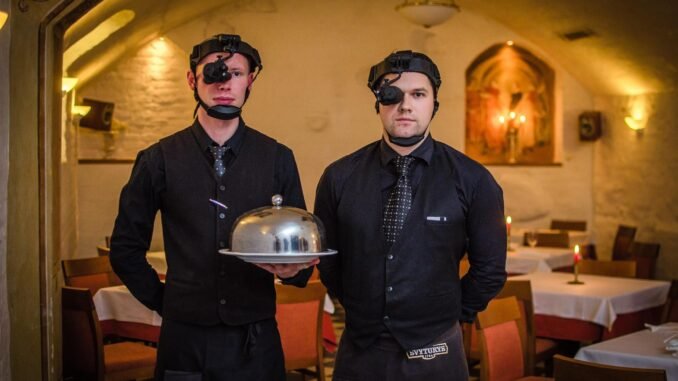
Prices in Lithuania decreased by 0.5% over the month, but annual inflation is again approaching the 1% mark. The most significant price increases over the year were in cafes and restaurants – nearly 9%. Some economists predict that restaurants will have to start lowering prices, as there are fewer and fewer diners, Eglė Šepetytė states in TV3.lt
Economists do not forecast any significant growth in food or other goods, but inflation is expected to double by the end of the year.
A group booked a table in advance and came to Bistrampolis Manor near Panevėžys for lunch. According to the director, such bookings save the business.
“People comment that ‘your prices are similar to Vilnius’. But, I say, but at least you feel that you are eating deliciously,” said Gitana Maskoliūnienė, the director of the restaurant-hotel.
Prices are rising due to VAT increase
And pleasing the palate is getting more expensive. Last year, a daily lunch here cost €8, now it’s €9.
“We started raising prices in the spring, and we have been suffering since the New Year; we were trying to survive, to attract customers,” Maskoliūnienė said.
From January 1st, the Government abolished the VAT reduction for catering establishments introduced during the pandemic, and the minimum wage has also risen. Many dishes have become a euro or more expensive.
“In May, we raised our prices a little because the VAT has gone up, and we work with quality suppliers,” Maskoliūnienė explained.
The latest State Data Agency inflation statistics highlight the rise in restaurant and café prices. Over the year, catering establishments raised prices by 8.5%.
“The VAT rate has increased from 9 to 21 per cent,” said SEB economist Tadas Povilauskas.
Wage growth is also contributing
Restaurant managers and economists say VAT and double-digit wage hikes have pushed up prices. This has already had consequences—restaurant turnover has fallen by 7% in a year.
“Restaurant prices have simply reached a psychological level, encouraging some restaurant customers to reduce their visits and consume less. Not because people have less money, but because psychologically, the prices have risen to such a level that it’s getting a bit scary,” said Citadele economist Aleksandras Izgorodinas.
According to the economist, the restaurants will likely suffer, and the customers will win.
“This will be the factor that will adjust restaurant inflation downwards. The lower the demand for restaurant products and services, the less pressure there is to raise wages, as the number of restaurant staff is likely to fall,” Izgorodin added.
According to statistics, prices fell by 0.5 per cent over the month.
“There has never been such a sharp drop in prices in August in 10 years,” said Povilauskas.
Here is how Panevėžys residents interviewed see the situation:
“Nothing is going down now, nothing, everything is going up.”
“You go into a shop, and there is everything; you can choose the prices; you don’t have to take everything expensive.”
“You can’t buy food here; there’s nothing to buy it for.”
“Everything here is perfect; just don’t whine.”
“It’s rising, it’s rising a lot, we should do something. So what if they increase salaries starting in January? Prices will still go up.”
Inflation will gain momentum
This is the law of the land—to pay higher wages, employers raise the prices of goods and services.
“As wages continue to rise at a practically double-digit pace, it should not be surprising that we continue to see a general price increase,” said Mr Izgorodinas.
“Prices are often determined to a large extent not by cost, but by how much the consumer can pay,” said Povilauskas.
Annual inflation is 0.8%. Economists do not see strong growth in the coming months, but inflation will gain momentum.
“Annual inflation will be slightly higher at the end of the year, and we maintain our forecast of close to 2% in December,” Povilauskas predicted.
In addition to restaurants and healthcare services, alcohol and tobacco in Lithuania have become even more expensive over the years.

Be the first to comment